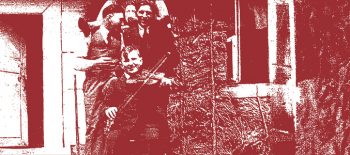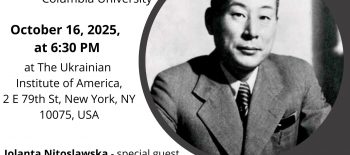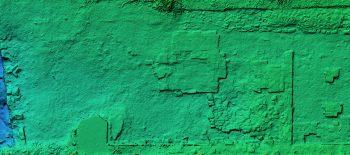Jozef Pilsudski, the architect of independence in 1918 and one of the most outstanding statesmen in Polish history, was born on December 5th 1867 in Zulów, in the Vilnius region. His achievements and political concepts have been a source of inspiration and heated disputes for politicians, publicists and historians in Poland.
Regaining independence in 1918 was the result of the efforts of several generations of Poles and the work of many political circles. Jozef Pilsudski, the founder of the legions and the first head of state, is regarded as the true father of the Second Polish Republic. On December 5th, we celebrate the 150th anniversary of his birth.
Pilsudski was born into a landowning family, in which the independence traditions were cultivated. He became involved in political activities even while he was studying in Kharkov, from where he was expelled for participating in student protests in 1885. Two years later Pilsudski was arrested on charges of involvement in a plot to overthrow Tsar Alexander II and was deported to Siberia for five years.
Shortly after his return from exile, Pilsudski joined the Polish Socialist Party. As one of the party’s leaders, he was arrested again by the Russian authorities and sent to prison in the infamous Warsaw Citadel. At the outbreak of the Great War, he established the Polish Legions and stood at their helm, leading the Legions into territory partitioned by Russia. In 1917 the Austria-Hungary leadership demanded that the members of the Legions take an oath of loyalty to the Emperor. When he refused, along with the majority of his brothers in arms, Pilsudski was arrested and imprisoned in a fortress in Magdeburg, where he was kept until November 1918.
After the defeat of Germany, Pilsudski was released from prison and he came to Warsaw, where the Regency Council, the erstwhile highest state body in the territory of the former Polish Kingdom occupied by the so-called Central Powers, entrusted him with the supreme command of the Polish troops and the mission of creating a national government in the liberated state. On November 22, 1918, he received the official function of the Temporary Head of State – he held this function until December 1922, when the first president of the Republic of Poland, Gabriel Narutowicz, was elected. In the years 1919-1921, Pilsudski was involved in the defence of Poland’s regained independence – as the commander-in-chief he was the architect of the victories of Polish troops in the battles for the borders of independent Poland, including the Polish-Bolshevik war. The Battle of Warsaw 1920 was one of the greatest and ground-breaking battles in history the Polish victory halted the march of the Bolshevik revolution to the west of Europe.
In 1923 he withdrew from active political life. However, in May 1926, upon disagreeing with the direction of political developments, he led troops loyal to him into Warsaw and after three days of fighting effectively forced the resignation of the regime. In the following years his functions included minister of military affairs and prime minister. In foreign policy, Pilsudski sought to maintain good relations with Western Europe.
The death of Józef Pilsudski on May 12th 1935, surprised the entire nation, and his funeral became an enormous national manifestation paying homage to the father of the independent Polish state. His body was buried in the crypt on the Wawel, where kings, statesmen and the most prominent Poles are laid to rest. His heart – in accordance with the testament left by him – was placed in a silver urn and transported to Vilnius, where it is buried in his mother’s grave in the Rossa Cemetery.
Watch a short film about Josef Pilsudski.



